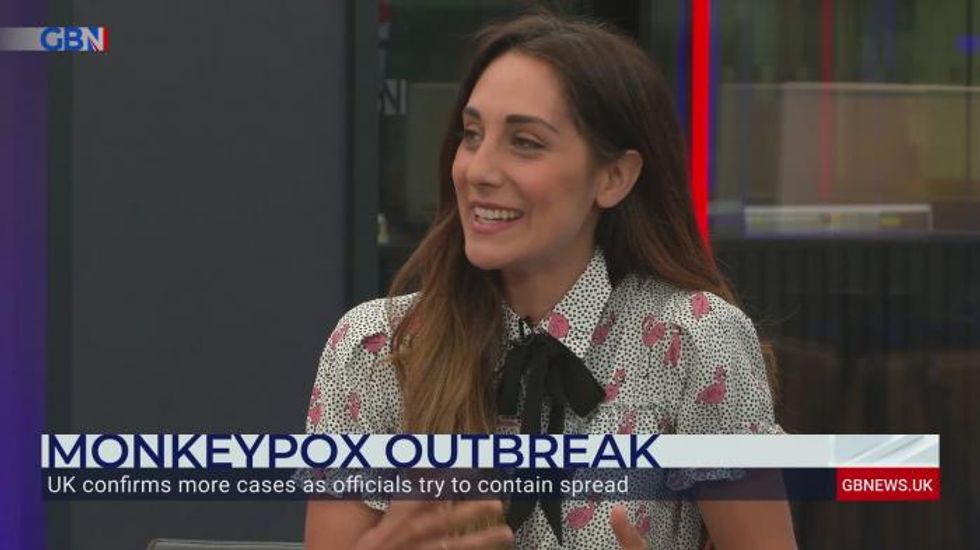Don't Miss
Most Read
Trending on GB News
People infected with monkeypox could carry the infection for long after any rash has disappeared, according to a new study.
It came as the UK Health Security Agency said on Tuesday that 71 confirmed cases of monkeypox had been reported in the UK.
Researchers who have been looking into the current outbreak, as well as past cases of the disease, say it is rare in children.
But a study published in Lancet Infectious Diseases said the infection remains positive after the rash has disappeared
Monkeypox vials
DADO RUVIC
First author on the paper, Liverpool School of Tropical Medicine’s Hugh Adler, said: “We hope [our study] informs the doctors and public health officials looking after cases now.
“We were surprised to see that you can detect the virus in a throat swab and in blood for this duration of time. We can see that it remains positive in the throat and blood for the length of the illness and maybe even longer after the rash is resolved."
The study identified that although limited, transmission within the UK has occurred in household and healthcare settings.
It also observed patient responses to two different antiviral medications developed for, and on standby to treat smallpox, brincidofovir and tecovirimat, suggesting that tecovirimat might shorten the duration of monkeypox symptoms and reduce the length of time a patient is contagious.
Researchers explained the drug would be given on a case-by-case basis, and in their study it was given to get a mother out of hospital as soon as possible so she could get home to her daughter.
Dr Adler added: “While the study size was small, the data gleaned from the seven cases were rich, providing the team with novel insights and suggesting the direction of travel for future research.
“We hope this dataset will inform clinicians caring for patients with monkeypox across the UK and Europe, but also in West and Central Africa where there is an unmet need for treatments for this infection.”
A Generic Photo of monkeypox rash
PA Features Archive/Press Association Images
Data suggests transmission between people is occurring in the UK, with a large proportion of cases identified in the gay, bisexual and men who have sex with other men community.
However, researchers say there is no clear argument for vaccinating this population.
Dr Jake Dunning, consultant in infectious diseases and High consequence infectious diseases (HCID), Royal Free Hospital, said: “We don’t have enough of the signal yet to say that is the correct thing to do, to offer vaccinations to all men who have sex with men.
“This is on the basis that currently they make up a large proportion of the cases that we’re seeing and the challenge is you need data to inform that sort of decision.”
The most likely route of monkeypox transmission is close physical contact, touching clothing, bedding or towels used by someone with the monkeypox rash, or touching monkeypox skin blisters or scabs.
There is a smaller risk of it being spread through coughs and sneezes, and as prolonged face-to-face contact would be needed, this is not one of the main routes of transmission for the monkeypox virus.
Dr Dunning also addressed whether or not there was a risk of monkeypox being spread from people to their cats.
He said while it is known that the virus can affect mammals, particularly rodents which are believed to be the main reservoir for the disease in Africa, more research is needed on this issue.












